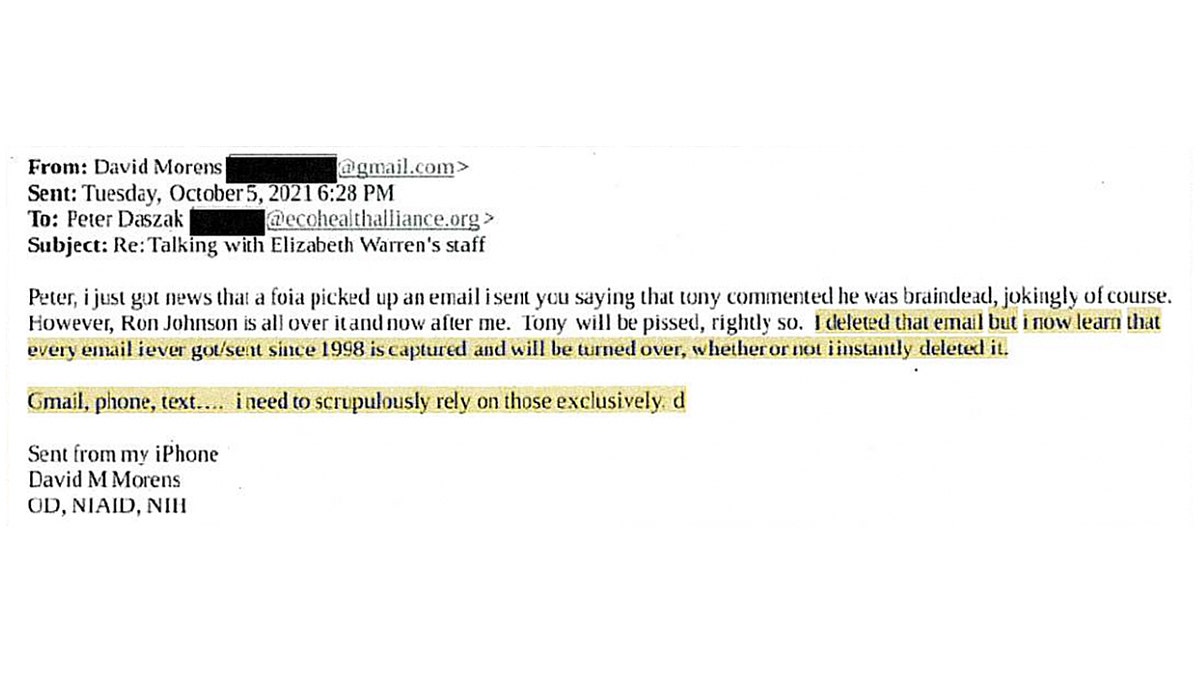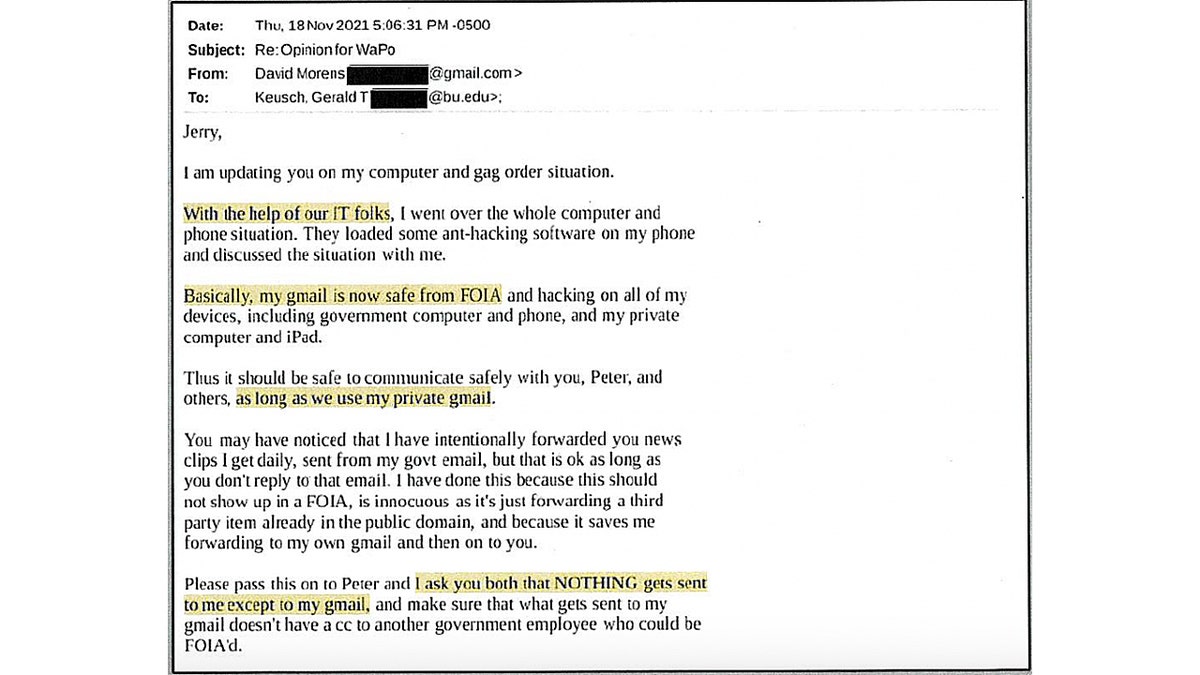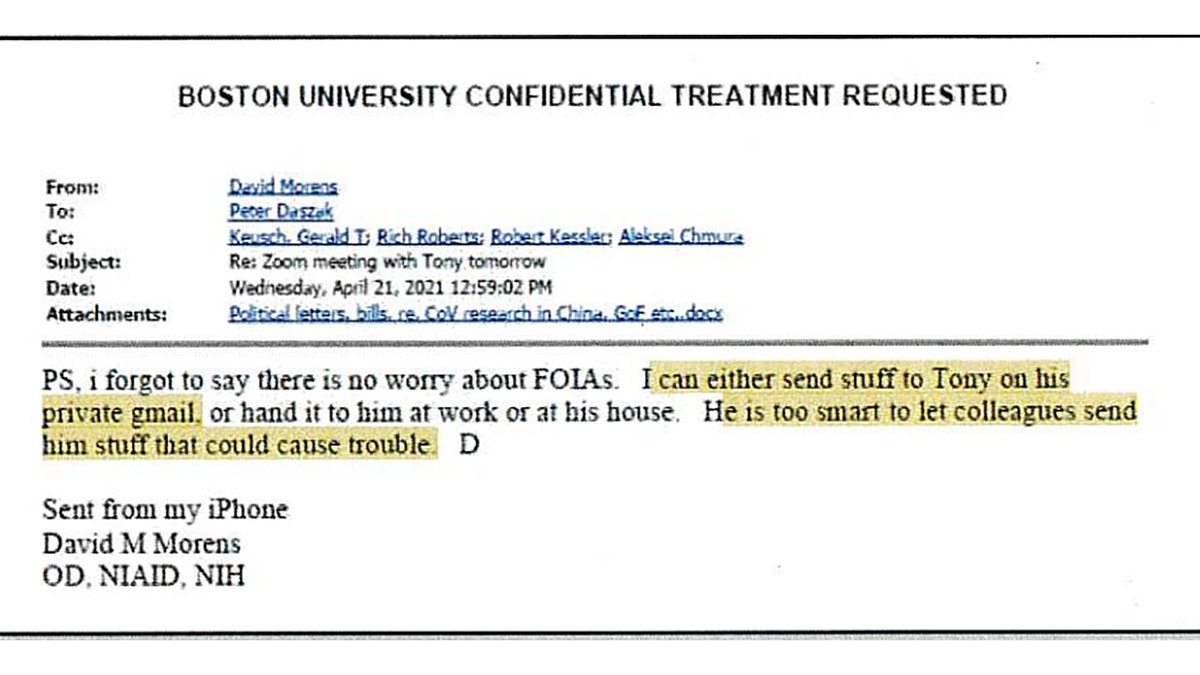Hours after the release of several seemingly damning emails revealing his provocative COVID-era communications, a former top adviser to Dr. Anthony Fauci offered excuses and apologies — but few real answers — during a contentious congressional showdown.
Dr. David Morens, the National Institute of Allergy and Infectious Diseases (NIAID) senior adviser, appeared before the House Committee on Oversight and Accountability on Wednesday afternoon with few insights about the alarming messages but a host of apologies to lawmakers. The newly released emails detail interactions between Morens and Dr. Peter Daszak, president of the EcoHealth Alliance, a non-governmental organization that funded coronavirus research in Wuhan, China.
“It’s just something I’m very ashamed that I can’t put the toothpaste back in the tube,” Morens said of the emails’ language, much of which he attributed to being just “black humor.”
Republican lawmakers accuse Morens of deleting emails and using his personal email account to skirt Freedom of Information Act (FOIA) requests.
FAUCI ADVISER’S ALLEGED DESTRUCTION OF COVID ORIGIN DOCS MUST BE PROBED BY AG: RAND PAUL

Dr. David Morens emails recently released by House lawmakers investigating.
In one of the newly released emails to Daszak, Morens said he “learned from our FOIA lady here how to make emails disappear after I am FOIA’d, but before the search starts. So I think we are all safe. Plus I deleted most of those earlier emails after sending them to Gmail.”
During Wednesday’s testimony, Morens said “that was a joke” when House Rep. Richard McCormick, R-Ga., asked what he learned from the “FOIA lady.”
“Are you sure about that? We can subpoena her email too,” McCormick responded. “You said she gave you advice… so you were lying then but telling us the truth now?”
“I wasn’t lying, I was making a joke. I said something like, ‘I have a way to make it go away.’ But that was just a euphemism,” Morens responded.

Dr. David Morens emails recently released by House lawmakers investigating.
At one point in the hearing, Morens offered: “I don’t know what to say except I’m sorry.”
In other released emails, Morens appeared to express concerns about what was being sent to his work email and what was sent to his personal email, informing those on the email chain that they did not need to worry and that he would “delete anything I don’t want to see in the New York Times.” It is not clear if any deletions actually occurred.
“As you know, I try to always communicate on gmail because my NIH email is FOIA’d constantly,” Morens wrote in a September 2021 email, which was sent at the time to many scientists involved in the debate about the origins of the COVID-19 virus. “Stuff sent to my gmail gets to my phone … but not my NIH computer.”
FAUCI ADMITS SOCIAL DISTANCING NOT BASED ON SCIENCE, ‘SORT OF JUST APPEARED’

Dr. David Morens emails recently released by House lawmakers investigating.

Dr. David Morens emails recently released by House lawmakers investigating.
